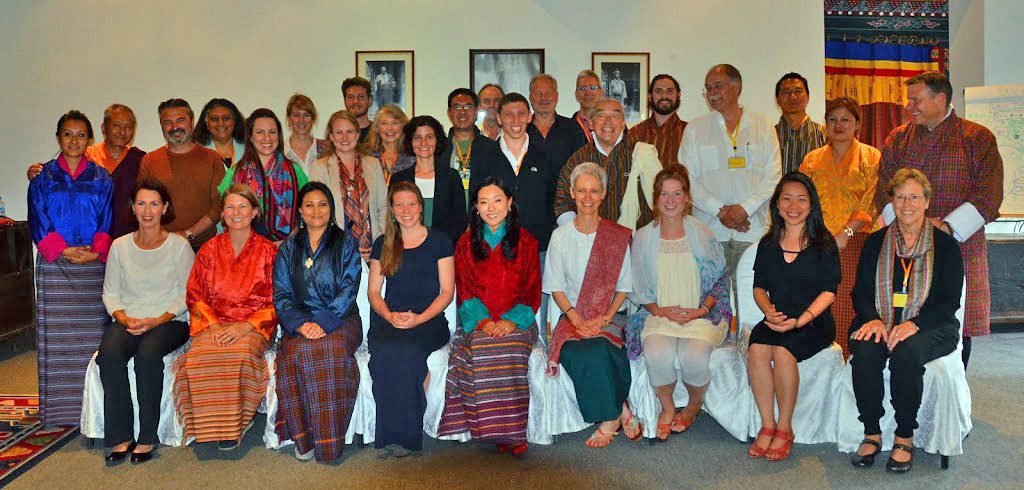Happiness isn’t a luxury – it’s a foundation
Gross National Happiness (GNH) challenges the idea that economic growth alone brings well-being.
Bhutan’s unique development model is built on four interconnected pillars that balance material security with emotional, cultural, and spiritual health.

1. Sustainable & Equitable Socio-Economic Development
Progress is only meaningful if it’s fair and sustainable.
Bhutan limits consumption, bans advertising, and reinvests tourism revenue into free healthcare and education.
- When I arrived in Paro, I noticed no billboards—just a serene image of the royal couple. That contrast with the sensory overload of Bangkok or New Delhi was striking.
- Tourists pay a daily fee, a portion of which directly funds the country’s social systems. As a visitor, you don’t just travel—you contribute.
2. Cultural Preservation & Promotion
Culture shapes identity, values, and connection.
Bhutan protects its heritage—from traditional dress codes to its 13 classical arts, taught in dedicated schools.
- I had the privilege of observing students painting thangkas, carving wooden masks, tailoring boots—keeping ancient crafts alive while creating future livelihoods.
- A woman told me: “Real happiness is eating together, sharing stories.” Storytelling isn’t just entertainment—it strengthens family bonds and transmits cultural values.

3. Environmental Conservation
In Bhutan, bature is not a backdrop—it’s a sacred partner. Bhutan is carbon negative and aims to stay that way—no mountain above 6,000m may be climbed, out of reverence for the spirits that dwell there. Over 70% of the country remains forested, protected by law.

- Flying into Bhutan, I was struck by the untouched majesty of the landscape: deep valleys, snow-capped peaks, dense forests.
- When I told a Bhutanese, that their forests seemed greener than those in Switzerland. He simply replied: “Naturally – we include our mountains, forests and rivers in our daily prayers.”
“In Buddhism, a tree is the provider and nourisher of all life forms, symbolizing longevity, health, beauty, and even compassion.”
4. Good Governance
Leadership is service—not inheritance.
Though the people deeply admired their King, he insisted on transitioning to a democracy, arguing that one person, chosen by birth, shouldn’t bear sole responsibility for an entire nation.
Today, all policies are evaluated through a GNH lens, ensuring decisions enhance collective well-being.

GNH isn’t about chasing happiness – it’s about creating the conditions for it to grow.
Which of these four pillars feels most fragile — in your life, your organization, or your environment?
And what might shift if you chose to give it more space?




